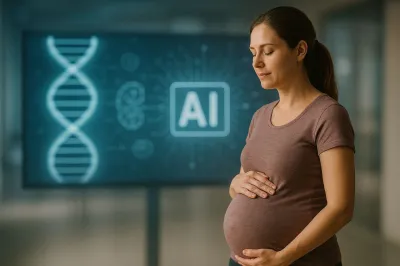Columbia University Fertility Center has announced a milestone in reproductive medicine with the first successful pregnancy using an artificial intelligence system known as STAR (Sperm Tracking and Recovery), according to Time Magazine time.com. The achievement comes after nearly 19 years of failed fertility treatments by one couple whose male partner suffered from azoospermia, a form of infertility where sperm cannot be detected in semen samples.
How the STAR System Works
Developed over five years at Columbia, STAR applies high‑powered imaging to capture up to eight million images of a semen sample in under an hour. An AI algorithm then analyzes each frame to pinpoint viable sperm cells that human technicians might miss time.com. Once identified, a microfluidic chip routes the sperm‑rich portion into a separate channel. A robotic arm then isolates individual sperm cells in mere milliseconds, avoiding chemical treatments or centrifugation that can harm sperm quality.
Understanding Azoospermia
Male factors account for about forty percent of infertility cases in the United States, with azoospermia responsible for approximately ten percent of those cases washingtonpost.com. In such cases, even expertly trained embryologists can spend days manually scanning samples without success. Traditional approaches often require invasive surgeries to retrieve sperm directly from testicular tissue or the use of donor sperm when none are found.
The Breakthrough Case
In the landmark case, the couple had endured fifteen unsuccessful in vitro fertilization cycles and consultations with fertility specialists around the world. Laboratory experts at Columbia had searched the husband’s samples for two full days without finding any sperm. When STAR was used, the system detected forty‑four viable sperm in just one hour time.com. These AI‑recovered cells were then used in a standard IVF cycle in March 2025. The procedure resulted in a healthy embryo and a pregnancy that is progressing normally.
Implications for Future Treatment
Dr. Zev Williams, director of the Fertility Center, believes that AI can transform other areas of fertility care beyond sperm detection, such as selecting the healthiest embryos for transfer or performing genetic screening more accurately time.com. Currently, STAR is in use for hundreds of patients at Columbia, and plans are underway to expand its availability to other clinics. As the algorithm learns from each case and refines its detection ability, the technology may reshape treatment for the one in six couples worldwide affected by infertility.
Personal Analysis
This breakthrough makes clear that combining AI with human expertise can overcome challenges once deemed impossible. It also reminds us that medical innovation often emerges at the intersection of disciplines—here, borrowing techniques from astrophysics to solve a clinical problem. While STAR will need further validation and long‑term follow up, its early success provides a glimpse of how technology can restore hope to those who have waited for years for a family.

